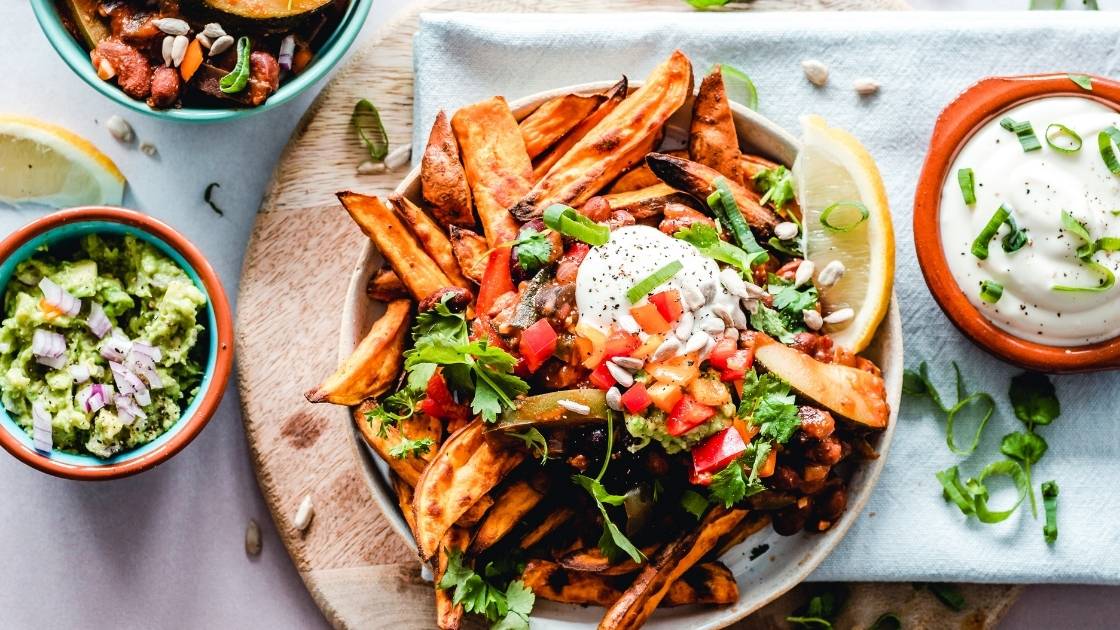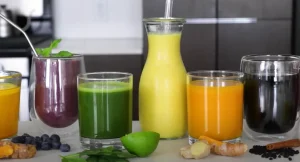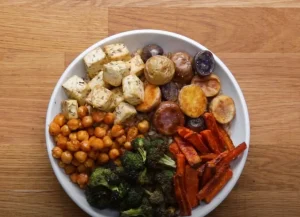- Low-acid foods can help reduce the risk of developing ulcers
- Avoid acidic foods and drinks, such as citrus fruits and juices, to prevent ulcers
- Infection caused by helicobacter pylori bacteria can lead to ulcers and should be treated with antibiotics
- Balanced dietary changes, including fruits, vegetables, and fiber, can help heal stomach ulcers
- Limit or avoid foods and drinks that are high in acidity
Ulcers formation is a common stomach problem and can be quite uncomfortable.
If left untreated, ulcers can become infected and even require surgery.
In this blog post, we will discuss the causes of ulcers and their associated risk factors.
We will also discuss the different types of ulcers and the foods that are best for treating them.
Finally, we will list some supplements that may be beneficial for ulcers.
Keep reading to learn everything you need to know about low-acid foods for ulcer prevention.
Causes of ulcers and their risk factors
There’s no one-size-fits-all answer to the question of how to avoid ulcers, as they are caused by various factors.
However, there are a few key things that can help reduce your risk of developing them.
One of the most important things you can do is to have a diet rich with non-acid foods and drinks.
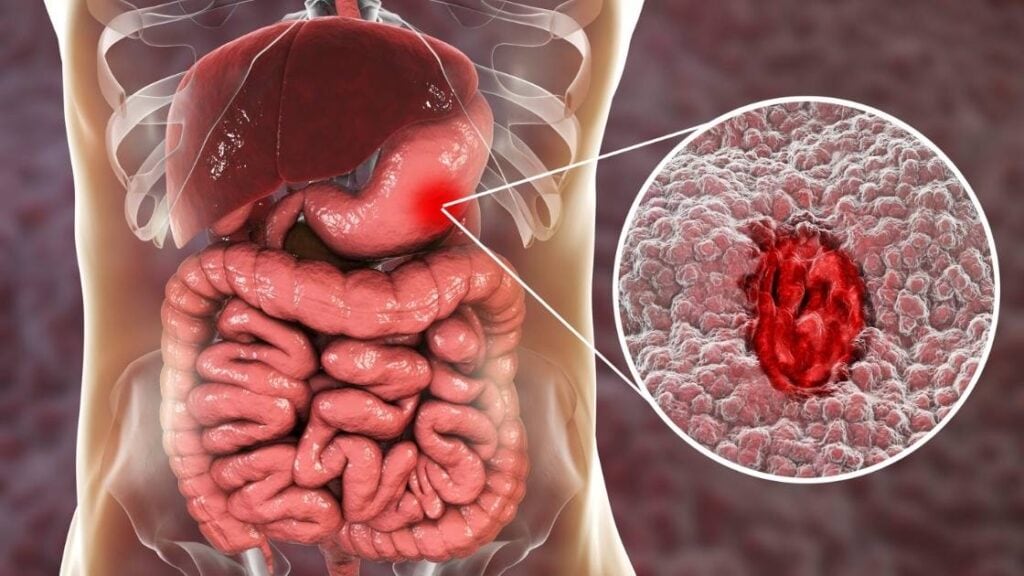
This means avoiding eating certain foods and drinks that are acidic, such as citrus fruits and juices, which are not good for ulcers.
By following this simple rule, you can reduce your risk of developing ulcers.
There is much different low-acid food for ulcers, so it’s important to find ones that are right for you.
If you follow these simple tips, you can avoid symptoms of stomach ulcers and enjoy an optimal healthy gut.
Infection caused by helicobacter pylori can also cause stomach ulcers.
It is essential to see a doctor and rule out the presence of this bacteria.
To eliminate pylori infection, a treatment based on antibiotics is necessary.
Many times, a single antibiotic cannot kill the bacteria.
This is why an effective treatment plan includes a combination of antibiotics.
If the helicobacter pylori bacteria is not eliminated or controlled, gastric cancer can develop.
To prevent bacterial infection, it is recommended to maintain good food hygiene and not eat raw food in restaurants.
Stomach and duodenal peptic ulcer disease are frequently brought on by NSAIDs (anti-inflammatory drugs) such as aspirin and ibuprofen.
Avoiding the prolonged consumption of these drugs is vital for preventing ulcers.
What food to eat if you have a stomach ulcer?
If you’re struggling to heal your gastric ulcer, it’s essential to know what foods to avoid.
Avoid drinking alcohol, overeating red meat, and bingeing on spicy foods.
Instead, try to eat balanced dietary changes that include plenty of fruits and vegetables and follow a diet rich in fiber.
If you still have trouble healing your ulcer, speak with your doctor about available treatment options.
Fruits
Fruits are a great way to promote good health and digestion.
They contain high levels of antioxidants that help prevent aggravating stomach ulcers as well as other diseases.
In addition, fruits are essential for maintaining acid-base balance in the body, which is important for overall health.
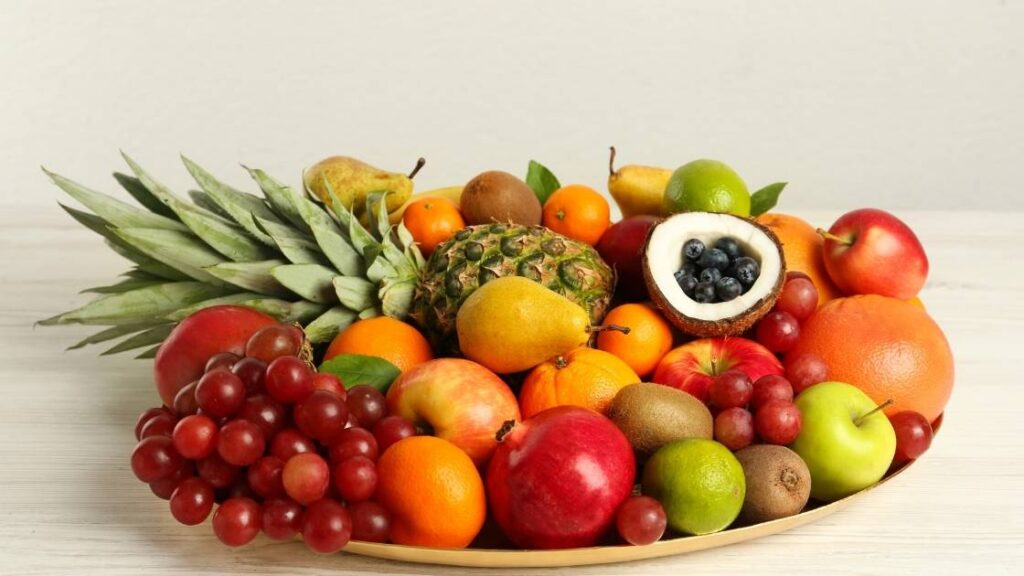
It is also advised not to eat processed foods, sugary drinks, or certain foods high in acidic content when you have a stomach ulcer; all of these can trigger reflux symptoms and aggravate the condition.
Some of the most recommended fruits are apples, blackberries, blueberries, strawberries, raspberries, and cherries.
Vegetables
When it comes to vegetables, aim for those that are low in acid.
Some of the most recommended greens and vegetables are cauliflower, radishes, cabbage, bell peppers, broccoli, carrots, and leafy greens, such as kale and spinach.
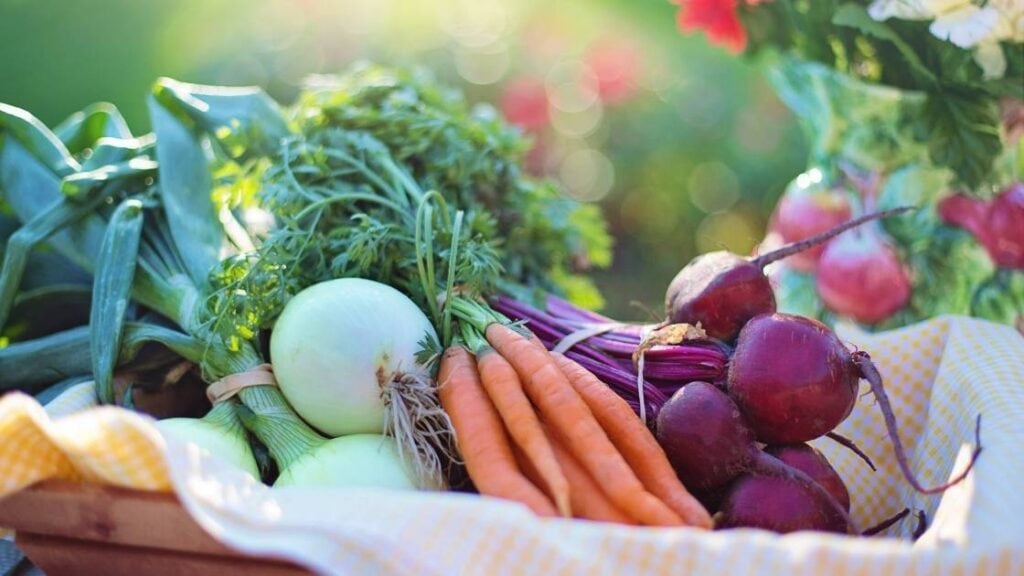
As a result of eating plenty of these types of veggies regularly, you will help heal your stomach ulcer.
These vegetables are considered a stomach ulcer diet and are very helpful for peptic ulcer disease.
Other options
If you are diagnosed with a stomach ulcer, it is important to keep your diet richly low in acid foods.
This will help to heal the ulcer faster and prevent it from recurring.
Some good options include fish, chicken, honey, garlic, decaffeinated green tea, licorice, turmeric, olive oil, and other plant-based oils, and probiotic-rich best foods, such as yogurt, kefir, miso, sauerkraut, and kombucha.
Make sure to eat plenty of water too; this will help flush out any toxins from your food.
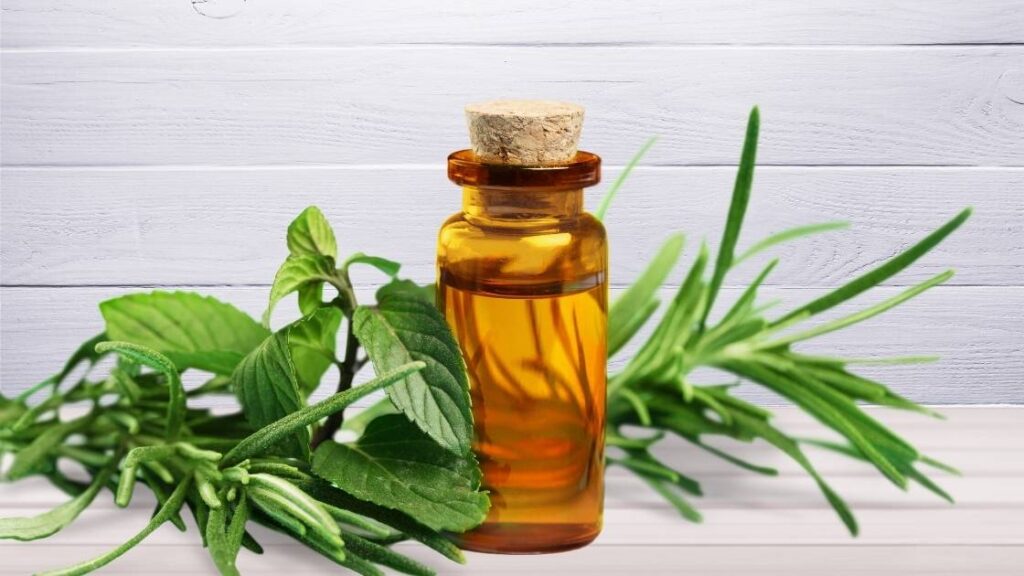
Why do these vegetables and fruits may be helpful?
Gut health is essential for overall health, and ulcers are a common problem.
If you’re looking to help reduce the risk of ulcer attacks or flare-ups, low-acid vegetables and fruits are great options.
They contain lectins, which bind to bad bacteria in the gut and suppress their growth.
This reduces the likelihood of an Ulcer attack or flare-up.
Additionally, they are high in fiber, which helps keep your bowel clean and healthy overall. In this sense, make sure to stock up on these certain foods and enjoy your gut-healing benefits.
Foods to limit or avoid if you have an ulcer and acid reflux
If you’re struggling with an ulcer, keeping a healthy gut bacteria balance is important.
This means avoiding foods that are high in acidic ingredients like tomatoes, citrus fruits, and vinegar.
In addition to this, low-acid foods include plenty of fiber-rich vegetables and whole grains.
Red wine and spirits are both high in acidity levels, so it’s best to stick to safer options like water or fruit juices.
Finally, make sure you’re getting enough fiber every day.
This will help to keep your gut healthy and help to manage reflux symptoms.
Here is the list of foods to avoid to reduce stomach acid.
Coffee, chocolate, and any caffeine
It is best to avoid these foods altogether if you are struggling with coffee or chocolate-related issues such as acid reflux or ulcers.
Coffee and chocolate can cause a build-up of stomach acids that can lead to an ulcer.

If you find yourself dealing with any digestive problem, it is important to speak to your doctor and get advice on which foods might work best for you in terms of managing your symptoms.
Alcohol
Alcohol is a beverage that can be enjoyed in moderation.
However, there are certain things you need to know about it if you want to limit your risks of developing health problems.
When drinking alcohol, try sticking to moderate amounts, as this will help reduce the risk of developing conditions like ulcers or acid reflux disease.

It’s also important to track what you eat while drinking, as food triggers may lead to such health issues.
Keeping a food diary gives you all the information needed to make informed decisions.
Spicy food
Spicy food is a popular choice, but it’s worth taking note of the potential consequences.
Foods with a high acid content can worsen your acid reflux and ulcer symptoms, so try to stick to foods that are lower in acidity.
In addition, spicy food can also be harmful if eaten excessively; reduce the number of spices used or eat milder versions.
Acidic foods
Foods that are high in acid can cause an ulcer and also worsen acid reflux.
To avoid this, try to include foods like leafy greens, cruciferous vegetables, berries, etc.
Additionally, processed foods, sugar, and saturated fats will all contribute to an overactive gut bacteria population, which can lead to health problems such as acid reflux or even obesity.
Supplements may be beneficial for ulcers
The common natural supplements used to treat or lessen peptic ulcer symptoms are listed below.
However, there is no scientific evidence that these supplements alone eliminate ulcers; always check with your doctor before taking any of these supplements.
- Berberine
- Cranberry
- Lactoferrin
- Licorice
- Melatonin
- Oregano oil
Different ulcer treatment options
There are many choices for ulcer treatment, and it largely depends on the severity of your condition.
If you’re experiencing ulcer-like symptoms, it’s important to consult your doctor or nutritionist to decide on the best course of action.
Some people may need medications or surgery to control their symptoms, while others may only require lifestyle changes.
To reduce your chances of developing ulcers in the future.
It’s important to avoid the prohibited foods mentioned in this blog and eat more low-acid vegetables and fruits.
More facts about low acid foods and stomach ulcers
- The microbes present in fermented foods may help lessen inflammation in the stomach. Also, it may be helpful to enhance the histological state of duodenal ulcers and ulcers in the small intestine and esophagus.
- To avoid the formation of ulcers, you may need to avoid acid production. For this, regular consumption of probiotics can help a lot as well as help prevent stomach pain.
- Cranberry juice is a good source of antioxidants that help soothe an irritated stomach and help protect the digestive tract.
- The ulcers are eating or perforating the lining of the stomach. If they are not completely cured, they can reach the stomach directly, causing bleeding and even cancer.
- To eat with a stomach ulcer is possible; you have to follow a diet for stomach ulcers. The best foods to eat when we have ulcers are non-acidic fruits and vegetables and low-fat foods.
- Eating spicy foods irritates your stomach and damages your digestive tract. Instead of consuming spicy foods, eat a diet high in fiber and antioxidants.
- People with stomach ulcers tend to lose weight because their digestive system is altered. This prevents the nutrients from food from being well absorbed.
- An adequate lifestyle and dietary changes can prevent the suffering of stomach, duodenal, and digestive tract ulcers.
- Peer-reviewed studies indicate that stomach ulcers can lead to stomach cancer if not treated properly.
- Some foods can help prevent ulcers. Certain foods may be fundamental in the prevention of multiple diseases in the digestive system.
Take care of your diet for stomach ulcers
Low-acid foods are foods that are high in sugar or starch.
These foods can cause ulcers in the stomach or intestines.
If you are struggling with stomach ulcers, it is important to follow a low-acid diet.
This means that you should avoid these foods.
The recommendations we give you here are general guidelines. However, each organism and body is a different case, always the best option is to talk to your doctor about your specific situation before making any decisions.

I am a professional health and nutrition writer with extensive experience in the industry. My passion for sharing valuable insights on nutrition and wellness stems from over 15 years of personal training and maintaining a healthy lifestyle. My commitment to continuously educate myself on the latest trends and research in the field allows me to deliver high-quality content that is informative and engaging. My mission is to empower individuals to make informed decisions about their health and well-being through my writing.
